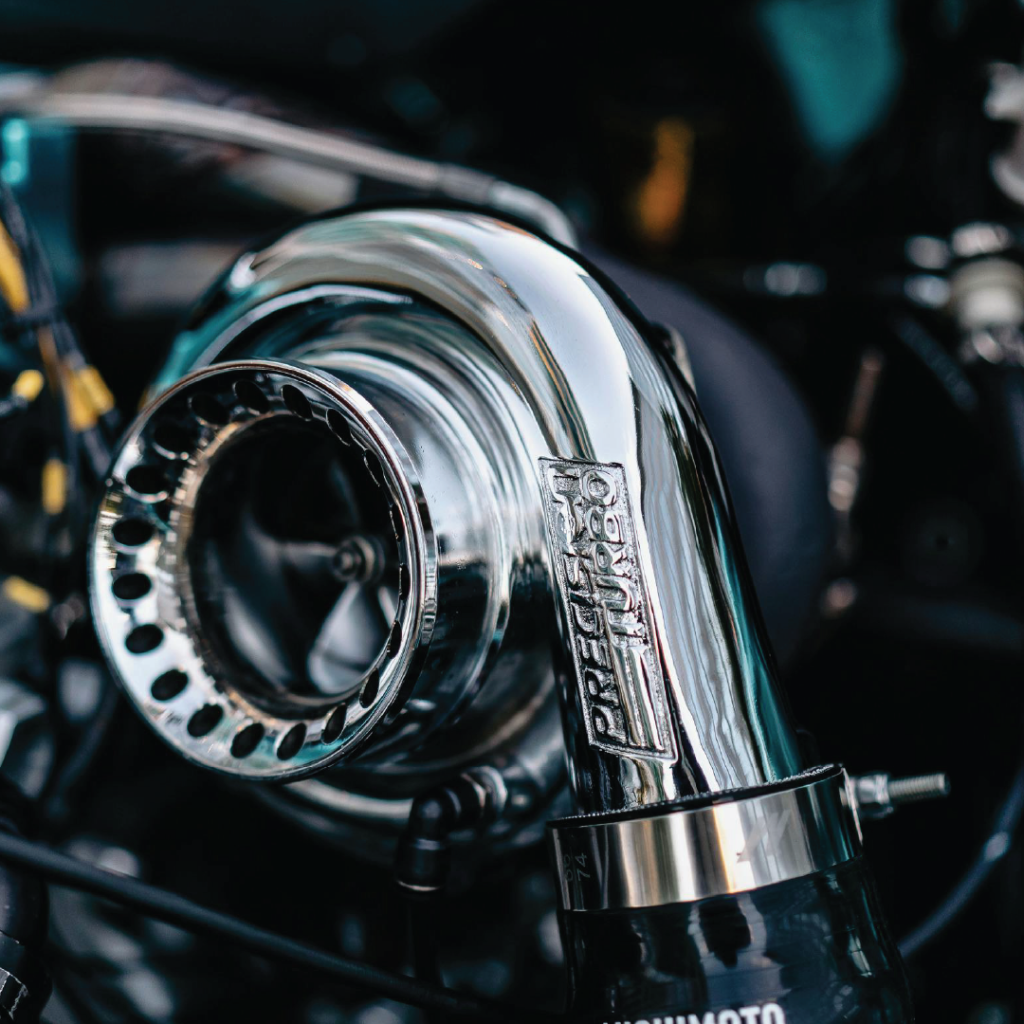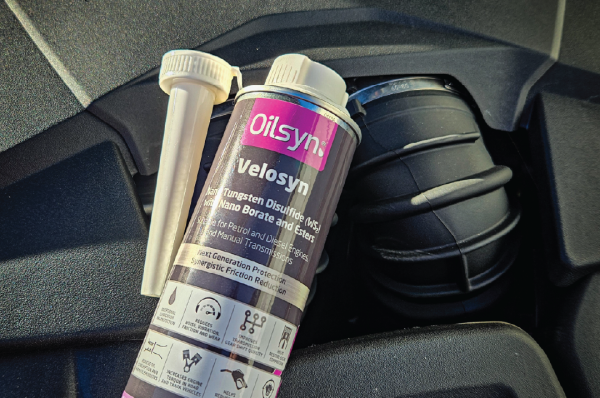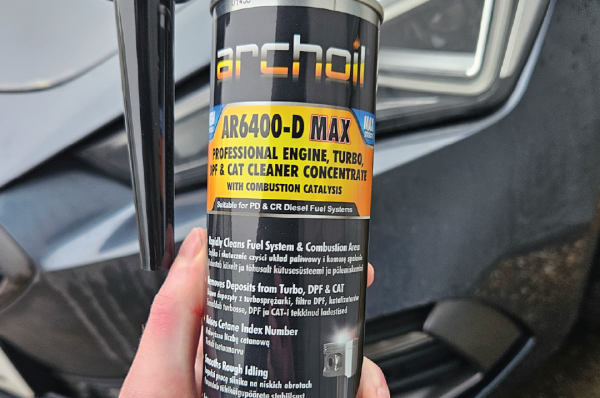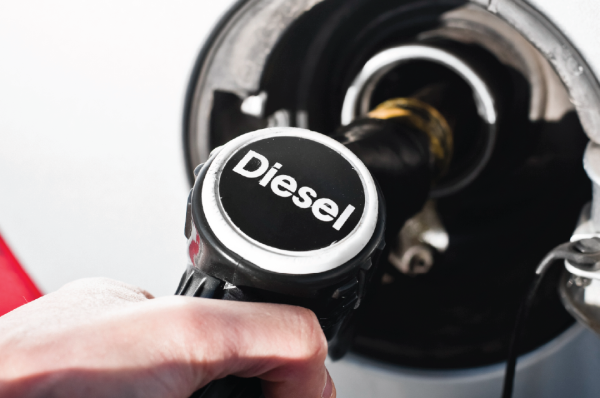
Is your car feeling sluggish? Engine performance not what it used to be? You might need a turbo cleaner additive. These special fuel additives are designed to remove carbon deposits and other harmful build-up that can affect your engine’s performance.
Turbo cleaner additives work by using powerful detergents and fuel-borne catalysts to break down carbon deposits in your fuel system, turbocharger, and engine components. When carbon builds up in these areas, it can restrict airflow, reduce fuel efficiency, and even cause costly damage over time. Products like CarbonCode DPF and Turbo Dr or AR6400-D MAX are specifically formulated to tackle these issues effectively.
We’ve seen remarkable results when turbo cleaner additives are used regularly as part of a vehicle maintenance routine. Many drivers report improved acceleration, better fuel economy, and smoother engine operation after just one treatment. For diesel vehicles with DPF systems, these cleaners can be particularly beneficial in preventing regeneration issues and extending component life.
Key Takeaways
- Turbo cleaner additives remove harmful carbon deposits that reduce engine performance and efficiency.
- Regular use of quality additives can prevent expensive repairs and extend the life of turbochargers and DPF systems.
- Proper application following manufacturer guidelines ensures the best results and maximum protection for your engine.
What Is Turbo Cleaner Additive?
Turbo cleaner additives are specialised products designed to remove carbon deposits and other contaminants from turbochargers and related engine components. These formulations help maintain optimal turbo performance and extend the lifespan of turbocharger systems.
Definition and Key Functions
Turbo cleaner additive is a chemical solution specifically formulated to clean and restore turbochargers in combustion engines. These additives work by dissolving carbon deposits, soot, and other contaminants that accumulate in the turbo system during normal operation.
The key functions of turbo cleaner additives include:
- Carbon removal: Breaking down hard carbon deposits on turbo vanes and housing
- Soot reduction: Dissolving soot that restricts turbo movement
- Performance restoration: Helping restore lost power and efficiency
- Prevention: Creating protective barriers against future build-up
Most turbo cleaners contain detergents and fuel-borne catalysts that work at high temperatures to break down stubborn deposits. Products like CarbonCode Turbo Dr and Archoil AR6400-D MAX are particularly effective at cleaning variable geometry turbos where precision is crucial.
Types of Turbo Cleaner Additives
Turbo cleaner additives come in several forms, each designed for specific applications and cleaning methods:
Fuel-based additives: Added to the fuel tank, these work through the combustion process. They contain detergents that clean as fuel passes through the engine and turbo system. Products from PowerEnhancer tend to excel in this category with consistent results.
Oil-based additives: These are added to the engine oil and clean the turbo’s bearing housing and oil-exposed components. They’re particularly useful for older turbos experiencing oil-related issues.
Direct application cleaners: Professional-grade solutions applied directly to the turbo components during servicing. Oilsyn products like CarbonCode DPF and Turbo Dr are standouts in this category.
How Turbo Cleaner Additives Differ from Engine Cleaners
Turbo cleaner additives are specially formulated for the unique conditions inside turbochargers, while general engine cleaners target broader engine components. The main differences include:
Temperature resistance: Turbo cleaners must withstand extremely high temperatures found in turbochargers (often exceeding 900°C), whereas standard engine cleaners work at lower temperature ranges.
Precision cleaning: Turbo additives focus on the precision components of turbochargers, including the variable vanes, waste gates, and actuators that require meticulous cleaning.
Specialised detergents: We find that quality turbo cleaners contain specific detergents designed not to damage sensitive turbo components made from aluminium, titanium and other metals.
Deposit types: Turbo cleaners target the unique types of deposits formed in turbochargers, which differ from those found in other engine areas due to the extreme heat and pressure conditions.
How Turbo Cleaner Additives Work
Turbo cleaner additives use specialised chemical formulations to dissolve carbon deposits and prevent new buildup in turbocharged engines. They work through multiple mechanisms that target different parts of the fuel and exhaust systems.
Mechanisms in Turbocharged Engines
Turbo cleaner additives contain powerful detergents that break down carbon deposits on turbocharger components. When added to fuel, these chemicals flow through the combustion chamber and attach to carbon particles, dissolving them into smaller bits that can be safely expelled through the exhaust.
The detergents in products like CarbonCode Turbo Dr target high-temperature areas where deposits typically form. This includes turbo vanes, which can become sluggish when coated with carbon.
Most quality additives like Archoil AR6400-D MAX also contain metal conditioners that create a protective layer on turbocharger surfaces. This protection helps prevent new carbon from sticking to clean components.
In diesel engines, fuel-borne catalysts in these cleaners lower the combustion temperature needed to burn away soot particles. This makes them particularly effective for vehicles with frequent short journeys where turbos don’t reach optimal temperatures.
Interaction with EGR Systems
Turbo cleaners work hand-in-hand with Exhaust Gas Recirculation (EGR) systems to reduce harmful emissions. The EGR valve recirculates a portion of exhaust gases back into the intake manifold, but this process can lead to significant carbon buildup.
Quality diesel turbo cleaners contain solvents specifically formulated to dissolve stubborn deposits in EGR valves and coolers. These deposits can restrict the flow of exhaust gases, causing poor performance and increased fuel consumption.
When the cleaner flows through the EGR system, it softens hardened carbon, allowing it to be gradually removed during normal engine operation. Products available from Power Enhancer often include compounds that prevent the EGR valve from sticking in partially open positions.
The best additives also help reduce soot accumulation in the EGR cooler, maintaining proper heat transfer and preventing the system from becoming clogged.
Benefits of Using Turbo Cleaner Additives
Turbo cleaner additives offer significant advantages for vehicle owners looking to improve engine performance and longevity. These specialised products work by removing harmful deposits and protecting vital engine components.
Improving Turbo Performance
Turbo cleaner additives effectively remove carbon deposits that accumulate in the turbocharger system. These deposits can restrict airflow and cause the turbo to work harder than necessary. When we add a quality fuel additive like Oilsyn CarbonCode to our tank, it helps dissolve these stubborn deposits through its advanced detergent properties.
The results are noticeable quite quickly. Many drivers report:
- Improved acceleration response
- Reduced turbo lag
- Better fuel economy (up to 5-8% in some cases)
- Smoother engine operation
Modern turbo cleaners like Archoil AR6400-D MAX contain fuel-borne catalysts that break down carbon at the molecular level. This allows the turbocharger vanes to move freely, restoring proper boost pressure. We’ve found that regular use every 3,000-5,000 miles maintains optimal performance and prevents new deposit formation.
Extending Engine Lifespan
Quality turbo cleaner additives don’t just improve performance—they actively protect your engine. By removing harmful deposits, these additives reduce wear on critical components and help maintain proper oil pressure throughout the system.
The cleaning agents in products from PowerEnhancer work to:
- Reduce friction between moving parts
- Prevent premature turbocharger failure
- Maintain proper lubrication channels
Engine cleaners like Turbo Dr help protect expensive components from unnecessary replacement. A single bottle costs far less than a turbocharger repair, making it a wise preventative investment.
Regular use of these additives can extend turbocharger life by up to 30%. They also help maintain efficient combustion, reducing harmful emissions and preventing power loss over time. For diesel engines, these products can help prevent DPF clogging, saving thousands in potential repair costs.
Application Guidelines and Best Practices
Applying turbo cleaner additives correctly ensures maximum effectiveness and prevents potential damage to your vehicle’s components. Following proper procedures and safety precautions will help you achieve the best results while protecting yourself and your vehicle.
Proper Usage Procedure
To get the most from your turbo cleaner additive, timing and technique are crucial. We recommend adding products like CarbonCode DPF and Turbo Dr to your fuel tank when it’s about one-quarter full, then topping up with fresh fuel. This ensures proper mixing throughout the system.
For diesel vehicles, add the cleaner before refuelling approximately every 3,000 miles or during regular service intervals. Most fuel-based additives require 30-50 miles of driving after application to properly circulate through the system.
Dosage matters significantly. Always follow the manufacturer’s recommendations—typically one bottle treats 40-80 litres of fuel. Using too much won’t improve results and may cause issues.
For severely clogged systems, consider a two-stage treatment:
- Initial dose to break down deposits
- Follow-up dose 1-2 tank fills later
Safety Precautions
When handling turbo cleaner additives like Archoil AR6400-D MAX, always wear appropriate protective gear. Nitrile gloves protect your skin from chemical exposure, while safety glasses shield your eyes from accidental splashes.
Work in well-ventilated areas to avoid inhaling fumes. Never apply additives near open flames or while smoking, as many products contain flammable compounds.
Store bottles in cool, dry places away from direct sunlight and out of reach of children and pets. Always keep products in their original containers with labels intact.
If accidental skin contact occurs, wash immediately with soap and water. For eye contact, flush with water for 15 minutes and seek medical attention if irritation persists.
Never mix different brands of fuel additives unless specifically recommended by the manufacturer, as chemical incompatibilities could damage engine components.
Choosing the Right Turbo Cleaner Additive in the UK
Finding the right turbo cleaner for your vehicle requires understanding your engine type, driving habits, and the specific issues you’re addressing. The UK market offers several options that can help maintain turbo performance and extend engine life.
Factors to Consider for Diesel Engines
Diesel engines face unique challenges that make proper turbo cleaning essential. Look for products specifically formulated for diesel turbo systems that address carbon buildup and soot accumulation.
The best diesel turbo cleaners contain detergents and fuel-borne catalysts that break down deposits without damaging sensitive components. CarbonCode DPF and Turbo Dr by Oilsyn provides excellent results for most modern diesel engines.
When selecting a cleaner, consider your vehicle’s age and mileage. Older diesel engines with higher mileage often require stronger formulations to address accumulated deposits.
Check compatibility with your specific engine type and manufacturer recommendations. Some vehicles have sensitive fuel systems that require gentler cleaning agents.
Dosage is also important – follow the manufacturer’s instructions carefully to avoid over-treatment, which can sometimes cause more harm than good.
Market Trends and New Developments
The UK turbo cleaner market has evolved significantly in recent years, with advanced formulations entering the market that offer better cleaning with fewer applications.
Newer products like AR6400-D MAX use improved chemical technology that works at lower temperatures, making them effective even for short urban journeys where engines don’t always reach optimal operating temperature.
Key innovations in turbo cleaners include:
- Water-soluble active agents
- Lower emission formulations
- Multi-purpose cleaners that treat several systems simultaneously
- Eco-friendly options with biodegradable ingredients
We’ve noticed a shift towards preventative maintenance products rather than those focused solely on fixing existing problems.
Many new turbo cleaners now include additional benefits like improved fuel economy and reduced emissions, making them more attractive to environmentally conscious drivers.
Leading Brands and Consumer Recommendations
After extensive testing and customer feedback analysis, several brands consistently perform well in the UK market.
| Brand | Product | Best For |
|---|---|---|
| Oilsyn | CarbonCode DPF and Turbo Dr | Overall turbo cleaning performance |
| Archoil | AR6400-D MAX | High-mileage diesel engines |
| Power Enhancer | Various products | Preventative maintenance |
Consumer reviews frequently highlight Oilsyn products for their effectiveness on problematic diesel turbos with heavy carbon deposits. Many users report noticeable improvements in power delivery and reduced turbo lag after just one treatment.
Archoil’s AR6400-D MAX receives praise for its ability to restore performance in older vehicles with significant buildup.
For best results, we recommend using these products as part of a regular maintenance schedule rather than waiting until performance issues develop.
Frequently Asked Questions
Turbo cleaner additives require proper application techniques and product selection to deliver the best results. Users often have common questions about specific products, application methods, and effectiveness on different engine types.
How does one apply a turbo cleaner additive to a vehicle?
Most turbo cleaner additives are applied directly to the fuel tank before refuelling. This ensures proper mixing with the fuel. The typical dosage is one bottle per full tank of petrol or diesel.
For best results, we recommend adding the product when your tank is nearly empty, then filling up immediately afterwards. This creates ideal mixing conditions.
Some products may require specific application methods, so always check the manufacturer’s instructions on the packaging.
Which turbo cleaner additive is recommended for optimum performance?
CarbonCode DPF and Turbo Dr from Oilsyn delivers exceptional performance for turbocharger cleaning. It uses advanced detergents to break down carbon deposits effectively.
Archoil AR6400-D MAX is another excellent choice, particularly for vehicles experiencing turbo lag or reduced power. Its fuel-borne catalyst technology helps restore optimal turbocharger function.
These products outperform many standard additives because they contain higher concentrations of active cleaning agents.
Can turbo cleaner additives effectively remove carbon deposits?
Yes, quality turbo cleaner additives can effectively remove carbon deposits from turbos and related components. The special detergents in these products break down the tough carbon buildup that causes performance issues.
Most users notice improvements after 1-2 tanks of treated fuel. Severe cases may require multiple treatments to fully restore performance.
Regular use every 3-6 months helps prevent new deposits from forming and maintains optimal turbo function.
What are the top-rated turbo cleaner additives based on user reviews?
Oilsyn’s CarbonCode products consistently receive top marks from users reporting improved acceleration and reduced turbo lag. Many reviews mention restored power after just one treatment.
Archoil AR6400-D MAX has earned praise for its ability to restore turbo responsiveness, particularly in diesel vehicles. Users often mention smoother engine operation and improved fuel economy.
Products from Power Enhancer also receive positive feedback for their effectiveness in cleaning both turbos and DPF systems in modern vehicles.
Are there specific turbo cleaner additives designed for diesel engines?
Yes, there are specialised turbo cleaner additives specifically formulated for diesel engines. Diesel turbos face unique challenges with soot and particulate contamination that require targeted cleaning agents.
Oilsyn’s CarbonCode DPF and Turbo Dr is specifically formulated for diesel engines with its advanced cleaning technology. It addresses both turbo and DPF issues simultaneously.
Archoil AR6400-D MAX is another diesel-specific formula that excels at cleaning modern common rail diesel systems and their turbos.
What precautions should be taken when using a turbo cleaner spray?
When using spray-type turbo cleaners, always ensure the engine is cool before application to avoid potential fire hazards. Wear protective gloves and eye protection during application.
Follow the specific spray pattern indicated in the product instructions. Over-application won’t improve results and may cause issues.
After applying spray cleaners, allow sufficient dwell time before starting the engine. This gives the product time to penetrate deposits effectively.





